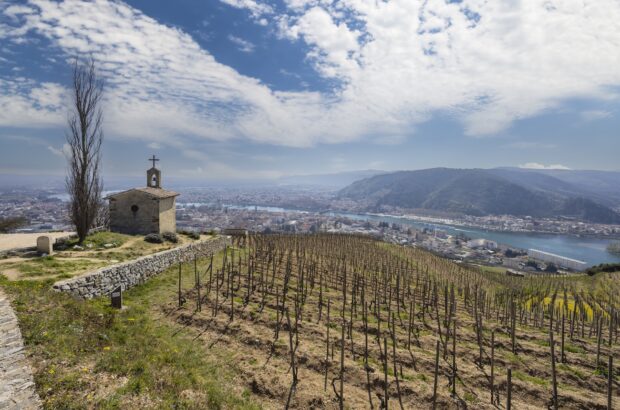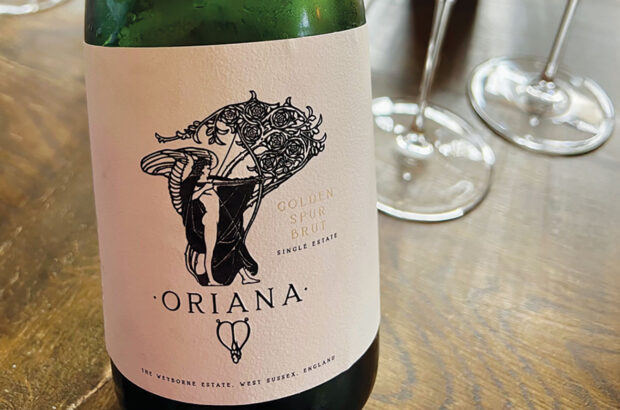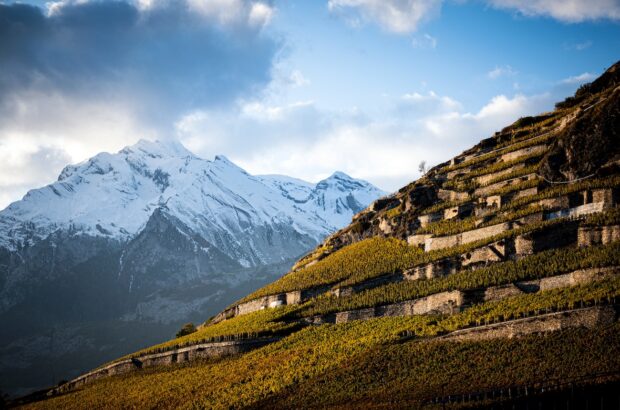The Príncipe de Viana Group includes four of Spain’s most respected wineries in equally renowned regions: Rioja Vega (DOCa Rioja), Finca Albret (DO Navarra), Bodegas Príncipe de Viana (DO Navarra) and Bodegas Clunia (Vinos de la Tierra de Castilla y León). Each of these names bears the responsibility of preserving a unique heritage of landscapes and vines (many of which are centenary), handed down by successive generations of passionate growers.
Aware of this privileged duty, Príncipe de Viana has had a sustainability program in place for the past two decades, encompassing a number of projects across all four wineries. These are yielding real and measurable results with an impact not only on the quality of the wines but also, and very importantly, on the vineyards they hail from.
Data-driven pioneers
The first steps were taken, 20 years ago, with the pioneering installation of advanced monitoring sensors in the vineyards. Control stations were installed in strategic points in order to collect granular data on weather conditions and patterns, soil health, nutrient availability and water stress level. The collection of all this information allowed the adoption of a data-driven, precision viticulture that optimises resources and deeply understands the dynamic of each plot and vine.
Data collection has also been the foundation for other initiatives, namely CLIMAVIN, a leading and innovative project that promotes the adaptiveness of the vineyard to climate change through the optimisation of resources. So far the project has led to a reduction of water and energy consumption of between 20 and 30%.

Challenges ahead
The fight against soil depletion, rightly perceived as one of the fundamental pillars of vineyard sustainability, is the goal of another of Príncipe de Viana’s R&D projects, BIGSOTSBIOMA. Again, a data-driven approach is the basis of the methodology: the information gathered by the multiple control stations peppered around the vineyards is interpreted in conjunction with analysis of the microbiological activity in the soil, in turn harnessed by new ‘soil-water-plant’ sensors. A complete understanding of vine and soil health levels affect decisions about different cultivation techniques so as to promote a natural regeneration, diversity and resilience of the soil microbiome. The ultimate goal is to improve nutrient availability and control pests and diseases in a natural way, thus supporting the stable and strong health of the vines.
In parallel, the group is also looking at strategies to fight specific threats and diseases without the use of chemically synthesised phytosanitary products.. BIOVID, the latest research project developed by Príncipe de Viana, focuses on measures to prevent the growth of Botrytis Cinerea (grey rot) by inhibiting the activity of specific yeast strains present in the vineyard, in what will hopefully be a sustainable alternative to fungicide use.
Perceivable results
Research and development have always been a fundamental part of the company’s ethos and support a renewed, daily commitment to sustainability and the mindful use of resources. This philosophy is applied holistically, from the vine to the cellar, and materialises in the rational consumption of water and energy (through drip irrigation and choice of efficient equipment and machinery), reduced use of phytosanitary products (applying, alternatively, insect sexual confusion methods and organic fertilisers), waste management, promotion of biodiversity and landscape preservation, with a particular commitment to local varieties.

The results of these ongoing, relentless efforts can be best measured in the consistent quality of the wines produced and their continued recognition, at home and abroad. In the last edition of the Decanter Wine World Awards (DWWA), the Príncipe de Viana Group counted 31 medals across its different wineries. Among the DWWA 2022 accolades are the Platinum Medal (97 points) awarded to Agramont Graciano 2021, the Gold Medal (96 points) won by Rioja Vega Tempranillo Blanco Reserva 2018 and the Silver Medal (92 points) fetched by the Príncipe de Viana 1423 Reserva 2017.
Such success is the product of the two-decades long commitment to the health of the vines and the proof that the accumulation of experience and knowledge are the best tools to produce the most characterful of wines.
Discover more about Príncipe de Viana’s sustainability projects
Connect on Twitter | Facebook








